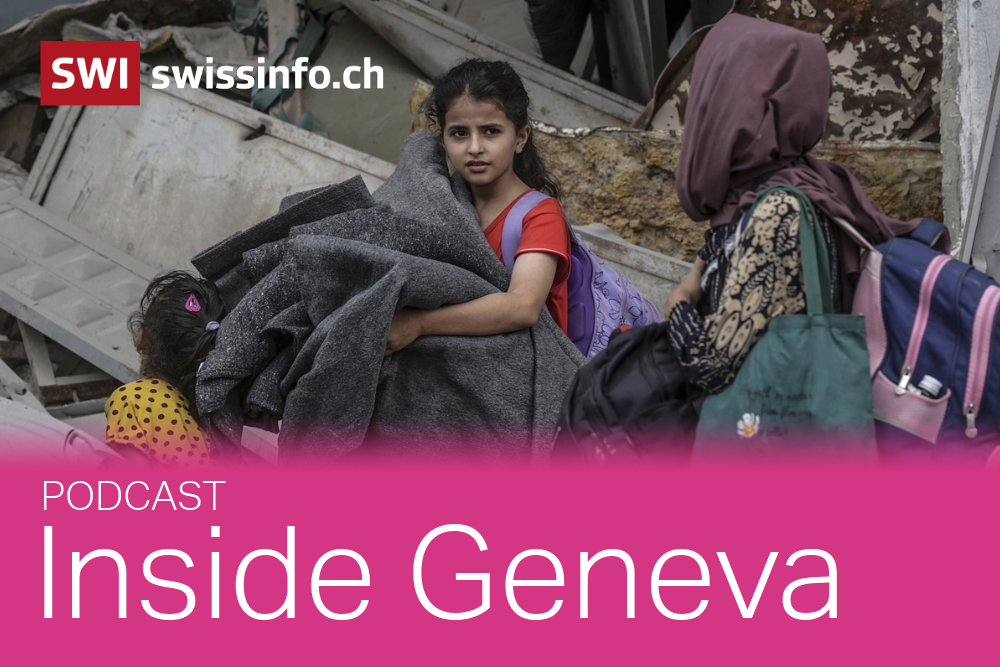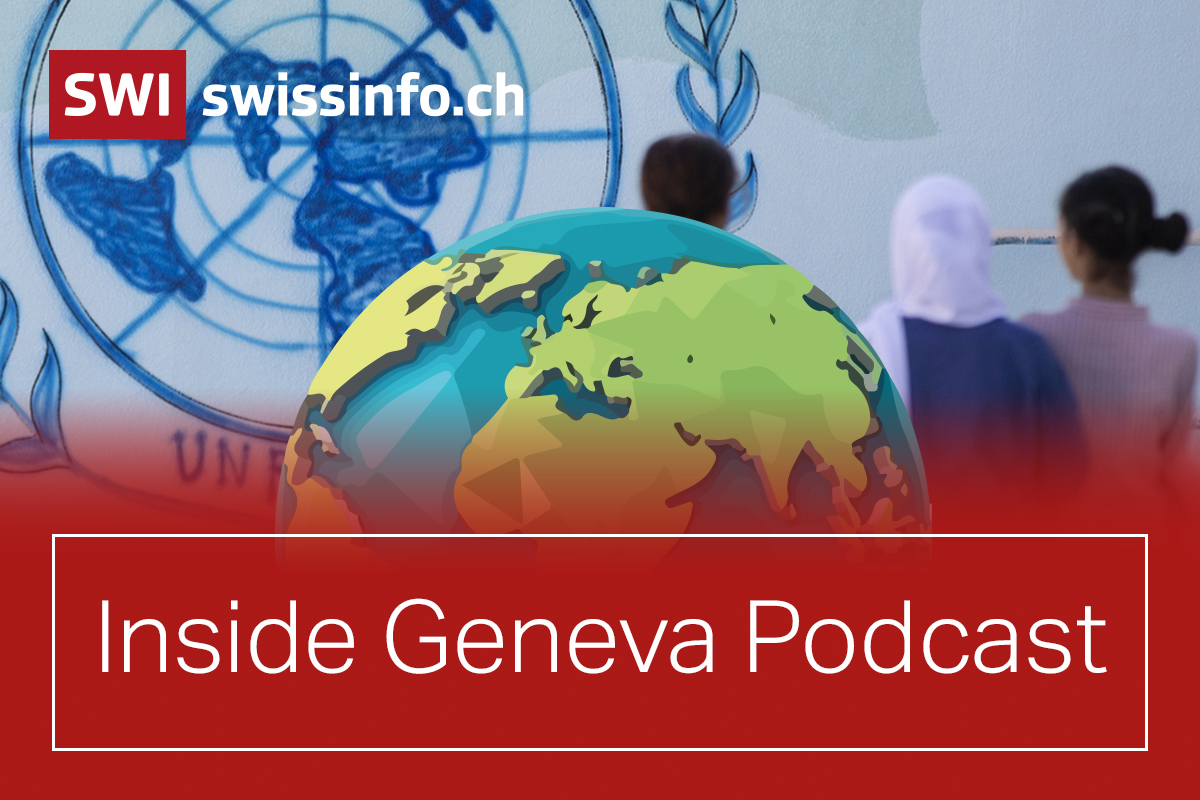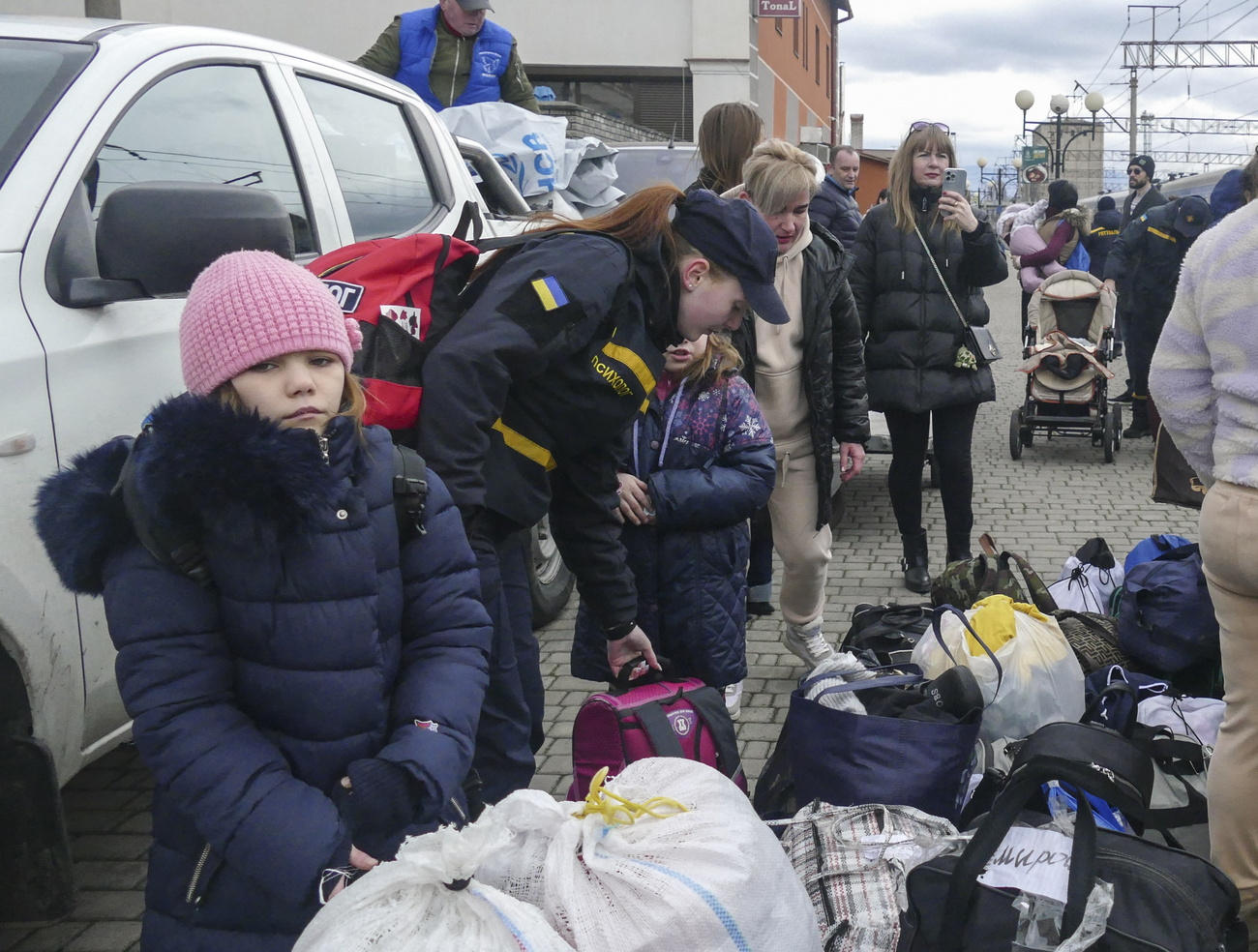
One year since October 7, seen from Geneva
One year ago, Israel suffered a terrorist attack carried out by Hamas, from Gaza. The shock, suffering, and trauma were immense, and as expected, Israel responded.
The 12 months since have seen terrible violence – the death toll in Gaza is at least 40,000: 17,000 of them children. Some 100 Israelis are still being held hostage. Despite repeated calls by world leaders for their release, for a ceasefire, and for access to Gaza for aid agencies, the conflict continues, and is now spreading to Lebanon, and, we all fear, to the wider Middle East.

More
Inside Geneva special: a year of war in the Middle East
Over the course of the last year, the Inside Geneva podcast has tried to explore this conflict; the fear, anger, and hurt on both sides, the unique challenges and risks faced by humanitarian workers in Gaza, and the legal questions around the way this war is being conducted.
As many of our readers and listeners will understand, reporting on this has not been easy for journalists, not only because the international media are not allowed into Gaza, but also because feelings about the conflict are so very polarised. In trying to do our job objectively, we are regularly accused of siding with one party or another, or of neglecting the suffering of one group, and exaggerating the pain of the other.
That’s why, in a special episode of Inside Geneva, out on October 7, we revisit some of our coverage of the last 12 months, and we start with a thoughtful and in-depth interview with former human rights commissioner Zeid Ra’ad al Hussein. I caught up with him late last October at – tragic irony – Geneva Peace Week, and he offered a moving analysis of the way the undisputed hurt inflicted by war fuels anger – and yet more conflict.
“There’s a focus on the centrality of my pain, the pain my community feels and I feel, and I want the world to stand with me whoever I may be, and I demand it as a recognition of my suffering. But then the obvious question is: ‘How often do we, as individuals, side with others who are experiencing pain?’” he told me.
That focus on one’s own suffering, understandable and even justified though it may be, is and always has been a barrier to peace. As Zeid points out, new wars break out, and old ones, fuelled by perpetual grievance and no resolution, continue.
“We have to deal with the immense stupidity of the wars that currently are in place. And here we are having to deal with wars of a sort that were better found in the history books devoted to the 20th century and ought not to have a place in the 21st.”
From pleas for peace, to the ICJ, and anger at humanitarians
You can hear that full interview with Zeid in our October 7 special, together with highlights from other episodes. In January of this year, for example, we discussed the case at the United Nations’ (UN) top court, the International Court of Justice (ICJ), in which South Africa claimed Israel, in its actions in Gaza, could be committing genocide.
Margaret Satterthwaite, the UN special rapporteur on the independence of judges and lawyers, gave us an in-depth explanation of what the ICJ’s role is. “This is a case about asserting humanity, and in fact asserting law over war. The purpose of the UN is to prevent disputes from turning into armed conflict. And the ICJ is there to help resolve disputes and to prevent war,” she said.
And Ken Roth, former executive director of Human Rights Watch, reminded us that although genocide is the term that strikes horror into all of us, there are many other crimes that happen in war.
‘‘People feel like if you don’t call it genocide then it’s not serious and that’s a mistake. Crimes against humanity are incredibly severe,” he said
An in-depth look at UNRWA
In March, we talked to humanitarian leaders, Israeli diplomats, and human rights groups about the role of UNRWA, the UN’s agency for Palestinian refugees, amid Israeli claims UNRWA staff were involved in the October 7 attacks.

More
Inside Geneva: what’s the future of UNRWA?
UNRWA’s head Philippe Lazzarini gave a stirring defence of his agency’s role, telling Inside Geneva that ‘‘UNRWA remains the only lifeline in a region full of despair. A region which now deserves that we collectively look at promoting a proper genuine peaceful political solution.”
But Israeli diplomat Nina Ben-Ami told us her country “felt abandoned” by the UN and described the alleged involvement of UNRWA staff in the attacks as “a game changer”, which meant Israel would no longer cooperate with the agency.
An update on that: UNRWA, which employs 32,000 people, immediately suspended the initial 12 staff members accused by Israel, and after a lengthy investigation, the UN fired nine, saying they “may have been involved.”
‘Are we safe here?’
And in April we sat down with Chris Black, cameraman for the World Health Organization (WHO), on his return from a WHO mission to support Gaza’s hospitals.
He gave us a frank and moving account of how he found himself helping to carry severely injured patients downstairs in the pitch dark, from a hospital with no electricity, out into a courtyard full of medical waste and the hastily-dug graves of those who had died.
What stands out for him are the families, emerging out of the dark corners of a hospital they hoped would provide shelter. One woman, holding her baby, asked him: ‘‘ ‘Are we safe here?’ And I wanted to say to her ‘You’re in the grounds of a hospital, this is a protected space, you should be safe here’. But I couldn’t say to her ‘you’re safe here,’”Chris told me.
‘There is no hierarchy of pain’
You can find all those episodes in full, wherever you get your podcasts. The content can be distressing for some listeners as it may trigger the kind of polarising emotions so many have experienced in relation to this conflict.
If so, it might be helpful to remember Zeid Ra’ad al Hussein’s words about shared pain, or to listen, in this special episode of Inside Geneva, to our final in-depth interview, with former Middle East Director of the International Committee of the Red Cross (ICRC), Fabrizio Carboni.
When I talked to him late last year, he was deeply involved in the tricky organisation of retrieving some of the Israeli hostages (following a complex agreement between Israel and Hamas) from Gaza and returning them to their families. And yet, despite successfully undertaking this risky mission, the ICRC was fiercely criticised by some in Israel for not doing more.
While Carboni carefully explains that the ICRC, a neutral organisation which never carries weapons, cannot force its way into a conflict zone, the point he is most keen to make echoes the one Zeid also made: “There is no hierarchy of pain”.
“I care about the families of the people who are taken hostages. I care about the civilians in Israel who regularly have to go into their basements, and I also care about the Palestinians. One does not exclude the other. We’re not doing accounting.”
Edited by Veronica DeVore

In compliance with the JTI standards
More: SWI swissinfo.ch certified by the Journalism Trust Initiative




























You can find an overview of ongoing debates with our journalists here . Please join us!
If you want to start a conversation about a topic raised in this article or want to report factual errors, email us at english@swissinfo.ch.